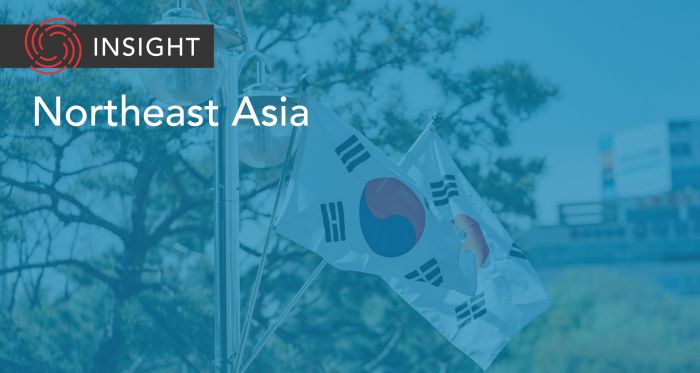The Takeaway
South Korea’s National Security Strategy (NSS), released on June 7, highlights the country’s intent to strengthen ties with strategic partners, including Canada, in security, trade, and new technologies, such as artificial intelligence (AI) and electric vehicles. This framework provides an opportunity for Canada to play a larger role in global security and supply chain resilience, reshaping Canada’s partnership with South Korea to help expand its presence in the Indo-Pacific.
In Brief
Unveiled on June 7, South Korea’s NSS, revised every five years, serves as the country’s foremost document for foreign and security affairs. This document delineates government policy and strategic directions with major global players, including China, Japan, the U.S., and, notably, Canada. This year’s NSS reflects changing international dynamics and positions South Korea as a “global pivotal state” contributing to freedom, peace, and prosperity.
The strategy emphasizes South Korea’s intent to “strengthen substantive cooperation with Canada,” aligning with goals to ensure stable supply chains and promote technological progression. This policy fosters strategic partnerships based on reciprocal benefits and common interests.
Coinciding with the NSS release, South Korea also announced that it won a rotating seat on the UN Security Council (UNSC). South Korea's two-year stint on the UNSC starts in January 2024. This dual role synchronizes its domestic policy focus with its burgeoning global responsibilities. The UNSC position enables South Korea to address international security issues, including nuclear threats and climate change, more adeptly, guiding its diplomatic actions within the UN and capitalizing on its enhanced status. This fusion of strategic planning and global engagement amplifies South Korea’s role in global security and provides a strategic trajectory for navigating multifaceted challenges.
Implications
Celebrating 60 years of diplomatic relations, leaders from Canada and South Korea have emphasized strengthening bilateral security co-operation to respond to evolving regional and global challenges. Amid a complex geopolitical environment marked by U.S.-China tensions, South Korea’s comprehensive NSS lines up with Canada’s own diverse security interests, opening a robust platform for collaboration on matters ranging from traditional military defence to emerging issues like supply chain resilience and climate change.
This strategy, which prioritizes maintaining regional stability and counteracting destabilizing activities, will enhance co-operation between Canada and South Korea by reaffirming shared commitments. This is exemplified by Canada’s Operation NEON, which monitors UNSC sanctions against North Korea. The NSS also prioritizes the responsible advancement of emerging technologies to safeguard democratic values against disinformation, which assists in upholding the two countries’ joint dedication to a rules-based international order and guides South Korea’s domestic and international efforts.
South Korea’s security strategy thus shapes the landscape for Canada-South Korea relations by extending the scope of their strategic partnership beyond traditional defence matters. It provides a road map for bilateral, regional, and multilateral co-operation in diverse fields by reflecting both countries’ intentions to address evolving security challenges. Consequently, Canada and South Korea could leverage the ambitious security agenda to foster a stronger, more dynamic relationship that serves the interests of the two countries and contributes to regional stability and global peace. The NSS’s multidimensional approach to security resonates with Canada’s own strategic priorities and underscores the crucial role of shared values and norms in shaping contemporary international relations.
What's Next
- Reinforcing military and security co-operation
Canada and South Korea are preparing to intensify their security ties through a security agreement for enhanced intelligence sharing and a potential C$60-billion deal, which would entail Canada acquiring up to 12 new submarines from South Korea. These moves are expected to bolster defence co-operation, particularly against North Korean threats, and upgrade Canada’s naval forces.
- Deepening economic and energy security
Leveraging their six-decade-long diplomatic relationship, Canada and South Korea intend to strengthen economic security and resilience by co-operating on energy security, focusing on critical minerals and clean energy fields, and potentially initiating hydrogen supply chain initiatives. This strategy could interlink both economies further and address pressing energy security and sustainability issues.
- Confronting climate change
Canada and South Korea, together with Australia, plan to increase co-operation in tackling climate change-induced disasters such as wildfires, potentially setting new global norms in disaster response. The forthcoming Canada-South Korea Climate Change Dialogue will also advance collaboration on clean energy policy, assisting in the transition towards more resilient, low-carbon economies.
• Produced by CAST's Northeast Asia team: Dr. Scott Harrison (Senior Program Manager); Momo Sakudo (Analyst); Tae Yeon Eom (Analyst); and Sue Jeong (Analyst).




